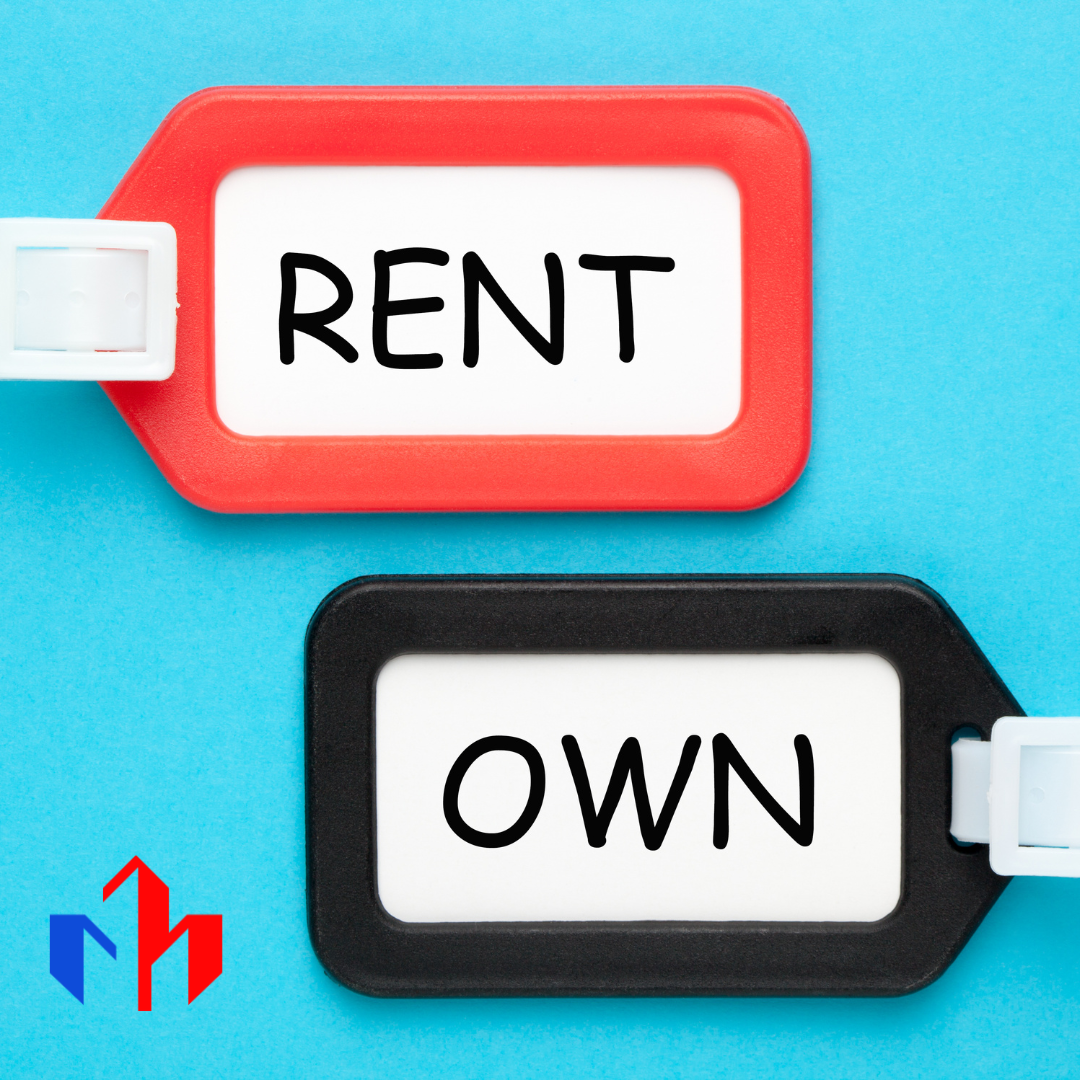Closing costs: what are they, and where does the cost come from?
Are you in the process of buying a home and wondering what closing costs are? If so, you’re not alone. Many homebuyers are confused about closing costs and where the cost comes from.
In this article, we’ll answer those questions and more. We’ll discuss what closing costs are, where the cost comes from, and how to keep your own costs as low as possible. So if you’re ready to learn more about closing costs, read on!

What are closing costs?
Closing costs are the fees charged by loan officers, real estate agents, and other professionals for their services in connection with the purchase of a property. These fees can add up to several thousand dollars, so it’s important to understand what they are and where they come from.
In most cases, the buyer will pay the majority of the closing costs. However, the seller may also be responsible for some of these fees. The actual amount that each party pays will be determined by negotiation between the buyer and seller and will be specified in the purchase contract.
Some common closing costs include:
-Loan origination fee: This is a fee charged by the lender for processing the loan application. It is usually a percentage of the total loan amount and can range from 0.5% to 1% of the loan amount.
– appraisal fee: This is a fee charged by the lender to have an appraiser assess the value of the property. The appraised value is used to determine whether or not the loan amount is greater than or equal to 80% of the value of the property (loan-to-value ratio), which is required for most loans. The appraisal fee can range from $300 to $500.
– points: Points are a type of prepaid interest that are typically paid at closing in order to get a lower interest rate on your loan. Each point equals 1% of your loan amount. For example, if you’re taking out a $250,000 loan and you’re willing to pay 2 points (2%), you would pay $5,000 at closing ($250,000 x 0.02 = $5,000).
– title insurance: Title insurance protects you from losing your home if someone challenges your ownership of it or if there are any errors in the public records relating to your property. It also covers you for any defects in title that may exist even if they’re not listed in public records (such as encumbrances or easements). Title insurance typically costs 0.5% to 1% of your loan amount ($1,250 to $2,500 on a $250,000 loan) and is usually split between buyer and seller.
Where does the cost come from?
The answer to this question may surprise you – closing costs are not just tacked on by greedy lenders, but are actually required by law. According to the Truth in Lending Act, all lenders must disclose the true cost of borrowing to their customers, so that borrowers can make informed choices about their loans.
So where do these costs come from? Some of them are related to the loan itself, such as origination fees (which go to the lender for processing the loan) or discount points (which lower your interest rate in exchange for paying upfront). Others are third-party fees for services like appraisal or title insurance.
And then there are closing costs that are simply gouged by the lender – junk fees that serve no purpose other than to line the lender’s pockets. These might include things like document preparation fees or “underwriting” charges.
The good news is that you don’t have to pay all of these costs upfront – many lenders will allow you to finance them into your loan. And if you’re smart about it, you can use negotiating tactics to get the lender to pay some of these costs on your behalf.
Who pays for closing costs?
The party who pays for closing costs varies depending on customs and negotiation, but it is typically the seller who pays. In some cases, the costs may be split between the seller and the buyer, or they may even be entirely paid by the lender. No matter who pays, closing costs are an unavoidable part of any home purchase.
In order to get a clear picture of who pays for what, it’s important to understand what closing costs are. In short, closing costs are fees charged by all of the various parties involved in a real estate transaction: lenders, title companies, real estate agents, and government entities. These fees can add up to several thousand dollars, so it’s important to be aware of them ahead of time.
The largest closing cost is typically the loan origination fee, which is charged by the lender for processing the loan. This fee can vary widely, so it’s important to shop around for a lender with competitive rates. Other common fees include appraisal fees, title insurance, and escrow fees.
As you can see, there are a lot of different fees that go into a real estate transaction. Who pays for these fees depends on customs and negotiation, but it is typically the seller who covers most or all of the costs. If you’re wondering how much you should expect to pay in closing costs, ask your real estate agent or lender for an estimate ahead of time so you can plan accordingly.
How much are closing costs?
The answer to this question depends on a number of factors, but in general, you can expect to pay anywhere from 2-5% of the total purchase price of your home in closing costs. These costs can come from a variety of sources, including the lender, the real estate agent, the title company, and the government.
Lender-related costs tend to be the most expensive and can include things like origination fees, loan discount points, and private mortgage insurance (PMI). Real estate agent commissions are typically around 6% and are split between the buyer’s and seller’s agents. Title company fees can vary depending on the services being rendered, but are typically around $1,000. Government-related fees include things like recording fees and transfer taxes.
Knowing what to expect in terms of closing costs is important because they can add up quickly. Be sure to ask your lender for a good faith estimate of all closing costs before getting too far into the loan process. That way, you’ll know how much money you need to bring to the table at closing.
What are common closing costs?
Closing costs are fees charged by lenders, real estate professionals, and others during the closing of a real estate transaction. They are typically due at or around the time of the home’s closing when the final paperwork is signed.
There are many different types of closing costs, but some of the most common include:
-Origination fee: This is a fee charged by the lender for processing the loan application. It is typically a percentage of the loan amount.
-Appraisal fee: This is a fee charged by the lender to have the home appraised to ensure that it is worth at least as much as the loan amount.
-Inspection fee: This is a fee charged by the lender to have the home inspected for any necessary repairs or problems.
-Credit report fee: This is a fee charged by the lender to pull your credit report.
-Title insurance: This is insurance that protects the lender in case there are any problems with the title to the home.
-Taxes and government fees: These are fees charged by local and state governments for things like transfer taxes and recording fees.
How can I reduce my closing costs?
You can’t avoid closing costs entirely, but you can ask your lender to pay some of them for you. This is called “lender credit.” Lender credits are available on both fixed-rate and adjustable-rate mortgages, but they’re more common on ARMs.
You can also shop around for a “no-cost” mortgage. With these loans, the lender covers the closing costs but charges a higher interest rate to make up the difference. If you plan to stay in your home for only a few years, this might be the best option for you.
You may also be able to negotiate with the seller to have them pay some of the closing costs. This is particularly common in buyers’ markets when sellers are more likely to be motivated to make a deal.
Whatever route you choose, remember that closing costs are an important part of the home buying process. By being prepared and doing your research, you can make sure that they don’t take you by surprise.
Are there tax implications for closing costs?
While most closing costs are not tax-deductible, there may be a few that are. For example, if you’re paying for points to get a lower interest rate on your mortgage, that could be deductible. You’ll need to itemize your deductions to claim this, however. Check with a tax advisor to see if any of your closing costs are deductible.
What else do I need to know about closing costs?
It is important to know that some Closing Costs are negotiable, and some are not. For example, the origination fee (the lender’s compensation for processing the loan) is almost always non-negotiable, while the title insurance premium (which protects the lender’s interest in the property) is usually negotiable.
Some other common Closing Costs include:
-Appraisal Fee: Charged by the lender to ensure that the property is worth at least as much as the amount being borrowed.
-Credit Report Fee: Charged by the lender to pull your credit report.
-Courier/Postage Fees: Charged by the lender to send documents back and forth.
-Deed Recording Fee: Charged by your local government for recording the deed to transfer ownership of the property.
-Homeowners Insurance Premium: A one-year policy paid in advance by the borrower to protect against fire, wind damage, etc. This is usually required by the lender.
-Loan Origination Fee: Charged by the lender for processing your loan application.
-Mortgage Insurance Premium (MIP): If you are putting less than 20% down on a home, you will be required to pay Mortgage Insurance. This premium is paid to protect the lender in case you default on your loan.
-Prepaid Interest: Interest that accrues on your loan from the date of closing until your first monthly payment is due. This interest is paid in advance by the borrower.
-For example, if you close on a loan on September 15th, your first payment would not be due until November 1st. However, interest accrues from September 15th until October 31st, so October’s interest must be paid at closing as well.
| MortgagesToGo.ca | |
| Website | Mortgagestogo.ca |
| Services | New purchase, refinancing and equity takeouts, mortgage transfer, mortgage renewal Rates |
| Rates | https://mortgagestogo.ca/mortgage-rates/ |
| Address | 12 Royal Vista Way NW #1110, Calgary, AB T3R 0N2 |
| Contact Details | (888) 888-5998 |
| Operating Hours | Monday – Friday 9 AM – 5 PM |








